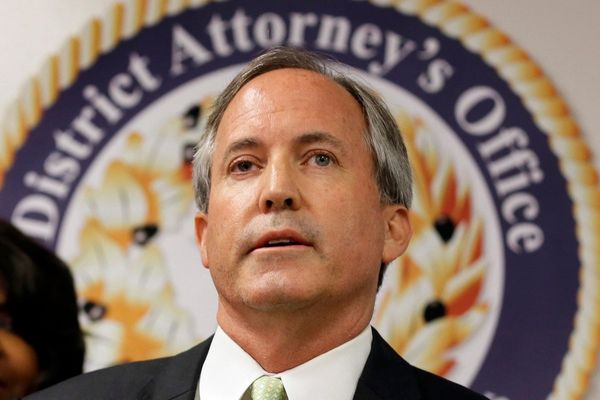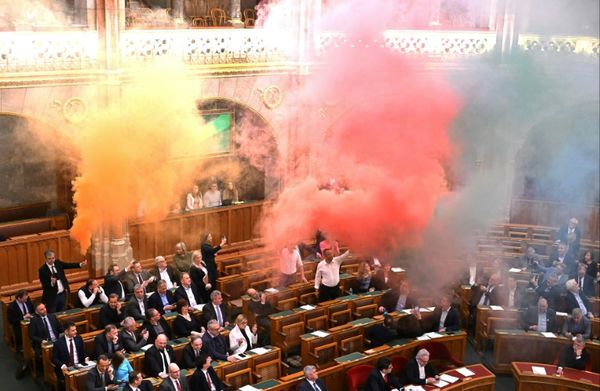Instacart parent Maplebear late Wednesday posted better-than-expected sales in its first earnings report as a public company. But Instacart stock slid in trading on Thursday.
Company officials warned about challenges in the broader economy in a letter to shareholders. Further, Amazon announced Thursday morning that customers will no longer need an Amazon Prime membership to order groceries from Amazon Fresh for delivery or free pickup.
On the stock market today, Instacart stock fell 10% at 24.48.
CART Stock: Sales Beat Expectations
For the quarter ending Sept. 30, Instacart lost $20.86 per share on sales of $764 million. Analysts polled by FactSet expected Instacart to lose $15.07 per share on sales of $737 million.
This is Instacart's first quarterly earnings report since Maplebear's initial public offering in September.
Instacart's $2 billion total loss on the quarter was driven by stock-based compensation expenses that were "significantly elevated" by the company's IPO, the firm said in its shareholder letter. The loss was slightly narrower than the $2.2 billion expected by analysts, according to FactSet.
Earnings before interest, taxes, depreciation and amortization — or EBITDA — were $163 million, ahead of a consensus of $120 million, according to FactSet.
Gross transaction volume, or GTV, climbed 6% year over year to $7.5 billion. Meanwhile, total orders increased 4% annually to $66.2 million.
The firm expects gross transaction volume to grow 5% to 6% year over year in the fourth quarter. Instacart also expects adjusted earnings of $165 million to $175 million for the quarter. Analysts are expecting $155 million, according to FactSet.
CART Stock: Macro Challenges
Instacart officials said in the company's shareholder letter that they are confident of Maplebear's long-term position, but the firm is facing challenges in the short term.
"Covid is no longer a tailwind, consumers are receiving less government aid, interest rates remain high, and inflation persists," the letter said. "Given our substantially larger scale, these headwinds impact us more than smaller, new entrants. While we expect these and other factors to continue to dampen our current and near-term growth, they do not change our long-term view on online grocery adoption or our competitive advantages."
Amazon Expansion
Instacart could soon be seeing greater competition from Amazon. The expansion of grocery delivery and free pickup beyond Prime members will be available across all Amazon Fresh locations, with plans to expand the option to Whole Foods locations as well.
Once fully launched, Amazon said customers in more than 3,500 cities and towns in the U.S. will have access to two-hour grocery delivery from Amazon Fresh or Whole Foods Market.
Prime members will receive discounted delivery fees and free shipping on orders over $100.
After a muted reaction to its earnings late Wednesday, Instacart fell sharply starting Thursday morning. DoorDash stock fell 3% Thursday, with grocery sales representing a much smaller share of its business.
Instacart's Wall Street Reviews
Analysts mostly raised or maintained their target prices following Instacart's report Wednesday night.
Stifel's Mark Kelley maintained a buy rating and 48 price target. He highlighted the 20% year-over-year jump in the firm's advertising and other revenue category, coming in at $222 million.
"We believe the company is on the right path with solid execution in its first quarter as a public company, and we remain positive on the long-term opportunity," Kelley wrote in a Wednesday client note.
BofA Global Research upped its target price to 31 from 30, with a neutral rating.
"We are constructive on the 3Q beat and improving margin outlook, but continue to prefer DASH and Uber which are growing top-line faster and gaining share in grocery," wrote BofA analyst Justin Post. Post noted that Uber's grocery operation likely grew more than 50% in the third quart while DoorDash's grew 100%.
Instacart Stock: Shaky Post-IPO
The trading Thursday adds to a run of volatility for Instacart following the Maplebear IPO on Sept. 19. Shares surged as high as 42.95 in first-day trading from an IPO price of 30, which itself represented the top of CART's range. However, those gains faded and shares closed at 33.70, up 12% on the first day.
As of Thursday afternoon, CART stock is trading down about 27% from its first-day closing price. That is despite several buy ratings from Wall Street analysts.
Including the slide Thursday, Instacart stock has a market cap of $6.6 billion. Private venture capital deals once valued the firm at a reported $39 billion.
Recent IPO stocks can be especially volatile. Newer companies with strong characteristics can be found in the IBD IPO Leaders screen.







